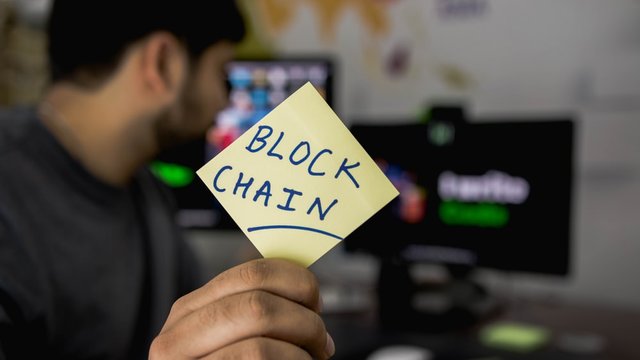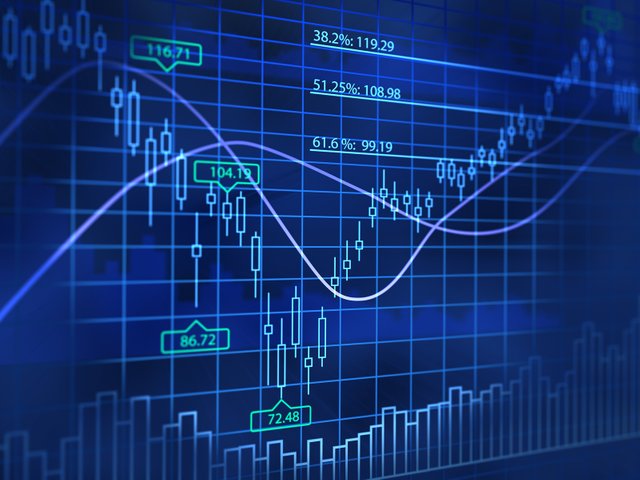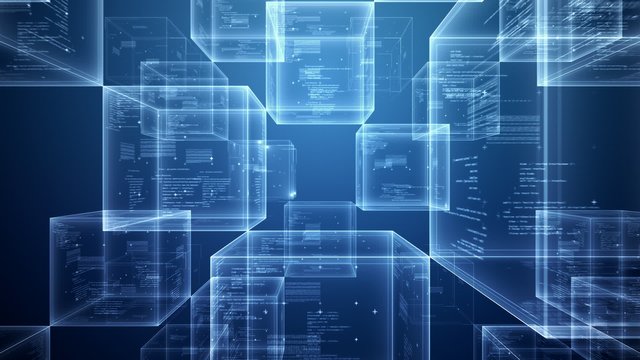
Blockchain technology is a decentralized digital ledger that stores public but encrypted data from peer-to-peer transactions. All members of a blockchain network can verify whether a transaction has taken place or not, making clearinghouses or other intermediaries superfluous. The technology originally served as the backbone of bitcoin, the well-known crypto currency, and later found its way into other industries. In France, blockchain represents a vibrant industry while the country paves the way for technology in the hope of becoming a blockchain hub in the European Union. The French finance minister, Bruno Le Maire, believes that:
"The blockchain offers our startups new opportunities, for example with initial coin offers with which they can raise funds via tokens."
In December 2018, two French MPs, Jean-Michel Mis and Laure de La Raudière, submitted a report recommending that the French government invest 500 million euros in public blockchain efforts over the next three years to become a "blockhain nation" " build .
The unique characteristics of blockchain technology (lower transaction costs, increased transparency and improved security) create new opportunities for the French electricity sector. A few start-ups such as Sunchain or Evolution Energy are currently setting up blockchain-based projects with the main aim of further decentralizing existing energy systems. However, various obstacles to the wide application of blockchain still have to be overcome.

Where does the blockchain go?
In this context, the energy market barometers, carried out by Grenoble Ecole de Management (GEM) in December 2018, asked experts for their opinion on where blockchain is going in the French energy sector. As a first finding, the experts were almost equally divided in their opinion as to whether blockchain will play a rather important or rather unimportant role in tomorrow's French electricity system. In order to understand the importance of blockchain technology in the energy sector and the challenges it faces, the experts were asked for their opinion on the viability of specific blockchain applications and the potential benefits, as well as the barriers currently widening the dissemination of limit technology In France.
According to the experts, the most promising applications of blockchain technology in the electricity sector in the next five years are "peer-to-peer energy trading" and "charging and sharing of electric vehicles". The blockchain promises to create a system where energy providers from the commercial sector or private homes can trade electricity without the intervention of a central authority. With the continued growth of electric vehicles, blockchain promises to provide an adequate, publicly available charging infrastructure that addresses the 'lack of reach' challenge by enabling individuals to make their private EV charging stations available for public use for a fee.
Currently, the majority of players in the energy market blockchain are trying to establish a form of peer-to-peer energy trading. In 2017, Enedis, in collaboration with the French start-up Sunchain and the Departmental Council of Pyrénées-Orientales, launched one of the first P2P projects for energy sharing in France. The project, DIGISOL, investigated the use of blockchain technology to share solar energy between individuals within the same building (collective car consumption). However, a large-scale application of the technology for P2P energy trading is still not present in France

Which use case for blockchain do you think is the most feasible for applying the technology within the energy sector in France in the next five years?
Blockchain technology is interesting because of the potential to decentralize energy markets and improve flexibility. blockchain allows real-time coordination of supply and demand for electricity that can improve energy efficiency on the demand side. Blockchain solutions can also be used to accurately monitor and control energy performance in real time, which will ultimately increase efficiency on the supply side. Blockchain actually offers companies ways to efficiently track energy consumption and generation and identify network deviations that can improve response time in the event of a failure or blackout. In France, ENGIE is investigating the use of blockchain technology to monitor water, natural gas and energy flows. The company has also entered into a partnership with various blockchain players, such as LEDGER, which specializes in security and infrastructure solutions for cryptocurrencies and blockchain applications, to develop blockchain for energy market solutions.

What potential benefits can blockchain offer for the energy sector in France?
However, the experts have also identified important barriers that limit the widespread spread of blockchain technology.
Unclear regulatory and legal framework
Blockchain solutions are growing fast and innovating far ahead of existing regulations. Clear legal definitions and regulatory frameworks are needed to eliminate the current level of uncertainty associated with blockchain. The French government, together with players in the blockchain ecosystem, is still working on drafting favorable regulations and legal frameworks for the technology. In December 2018, the French Accounting Standards Authority drafted a regulation defining the accounting rules applicable to Initial Coin Offerings (ICO; a very popular approach to raising capital in the blockchain space) issuers, ICO investors and organizations that every type of crypto has currency or cryptoactive. Various issues such as intellectual property, data privacy and contract enforceability, however, still need to be addressed.
Electricity usage
Current blockchain designs work on algorithms that can consume up to 215 kWh per transaction (i.e. the equivalent of having a 25 W incandescent lamp lit for a year). This is mainly because the validation and protection of transactions on the blockchain requires enormous computing power. For example, the servers running bitcoins software are estimated to use at least 22 terawatt hours (TWh) per year, which is almost the level of Ireland's annual electricity consumption. An extension of the blockchain requires extra "data mining" and consequently extra energy consumption. A number of green mining solutions that use renewable energy sources and energy-efficient hardware are currently being tested. The green Hydrominer startup, which operates two hydroelectric power stations in the Austrian Alps, is an example.
What are the main obstacles currently limiting the wider spread of blockchain technology within the energy sector in France?
Technical complexity
Current blockchain designs are extremely difficult to develop, deploy and maintain. For the novice user, executing a transaction on the blockchain can be a challenge because it requires technical knowledge and various advanced steps. A number of major IT players currently offer cloud-based blockchain services that are intended to automate the installation of blockchain infrastructures. Future blockchain applications may need to use a plug and play infrastructure that is much more user-friendly to achieve wider distribution.
Public governance, and automatization of social processes are the most promising use case of blockchain technology in my opinion.
Downvoting a post can decrease pending rewards and make it less visible. Common reasons:
Submit
True! Block chain had already proved what is have to we cannot even imagine how vast Blockchain is . Most of the companies are going to be linked to Blockchain to make their work easier and help them towards growth
Downvoting a post can decrease pending rewards and make it less visible. Common reasons:
Submit
Congratulations @singhisking1! You have completed the following achievement on the Steem blockchain and have been rewarded with new badge(s) :
You can view your badges on your Steem Board and compare to others on the Steem Ranking
If you no longer want to receive notifications, reply to this comment with the word
STOPTo support your work, I also upvoted your post!
Vote for @Steemitboard as a witness to get one more award and increased upvotes!
Downvoting a post can decrease pending rewards and make it less visible. Common reasons:
Submit